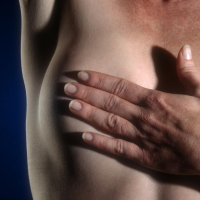
Women have been told for decades that they need to attend their routine breast screening appointments to detect early signs of breast cancer. However, a new major study, conducted by researchers at the Nordic Cochrane Centre in collaboration with researchers from Norway, looked into the effects of breast cancer screening programmes and have found a high risk of overdiagnosis and raise doubt about their benefits.
Risk of overdiagnosis outweighs the advantages of breast screening programmes
The cohort study, which was recently published in Annals of Internal Medicine, supports previous findings from the Cochrane review: Screening for breast cancer with mammography on the high risk of overtreating women and the doubts raised about the benefit of the intervention.
In an attempt to diagnose breast cancer early, a mammography screening very often detects small tumours that might not necessarily become malignant. In other words, the tumour would more than likely not be a life-threatening illness or health problem for the woman being treated. A breast cancer diagnosis is a life-changing event with profound implications for the psychological well-being and quality of life for women diagnosed and their families. They are subjected to invasive surgery, radiotherapy and sometimes chemotherapy, all of which are known to have serious, sometimes lethal, harms. The study also found that screening did not reduce the number of late stage tumours (those bigger than 2 cm), which means that breast screening is unlikely to reduce breast cancer mortality or lead to less invasive treatment.
Karsten Juhl Jørgensen, the lead author of the study explains, “In Denmark, we have the conditions to carry out a unique study as the screening programme was rolled out across the country in different regions at different times. We, therefore, had a control group of women of the same age during the same time period where the screening programme existed. This group of women were not screened over a 17-year period, making it possible for us not to have to speculate over what would have happened in the absence of screening”.
Additionally, breast screening leads to a 25 % to 50 % risk of being recalled due to a false positive test result if women attend a screening for the often recommended 20-year period. A false positive recall often means more mammograms and often biopsies. The time until a breast cancer diagnosis is excluded can be very stressful, and can have negative implications for many women's quality of life even well beyond this period.
In his editorial on the study, Chief Medical Officer for the American Cancer Society, Dr. Otis Brawley recognises the need for accepting the limitations of mammography screening, “Acknowledging the existence of breast cancer overdiagnosis challenges the value of screening: it means that the benefits of breast screening have been overstated, and that some women who have been “cured” were harmed because they received unnecessary treatment”.
The main findings from the study are that:
- Screening did not reduce the number of late stage tumours (those bigger than 2 cm), which means that breast screening is unlikely to reduce breast cancer mortality or lead to less invasive treatment
- 1 in 3 breast cancers detected in women offered screening are likely overdiagnosed
Should mammography screening be stopped?
Independent expert groups in Switzerland and France have recommended that breast screening be stopped or reduced substantially. Elsewhere, guidelines are already changing as well, i.e. the American Cancer Society now recommend less frequent screening of a narrower age group than just two years ago. Our study supports this development.
The full report is titled: “Breast Cancer Screening in Denmark: A Cohort Study of Tumor Size and Overdiagnosis.” The authors are K.J. Jørgensen, P.C. Gøtzsche, M. Kalager, and P. Zahl.
For more information on breast cancer screening and the implication of the findings, please read the Cochrane Review on mammography screening or mammography screening information leaflet.
Karsten Juhl Jørgensen, the lead author of the study, can be contacted via email: kj@cochrane.dk.
